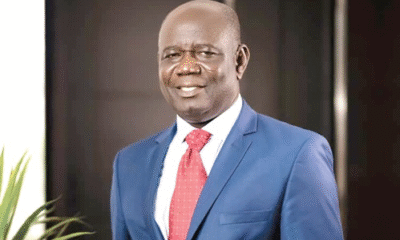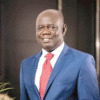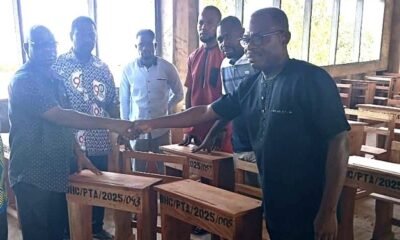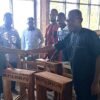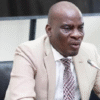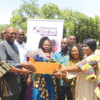Sir Sam Jonah, Chancellor of the University of Cape Coast, has recommended that graduates from tertiary institutions in Ghana undertake a year of military service as part of their national service.
He proposed this initiative for individuals aged 19 and above, suggesting it as a measure to build discipline, resilience, and leadership qualities among young people.
This proposal was made during the Graphic National Development Series on Education, where Sir Jonah emphasized the need to reform the current national service framework.
He argued that the programme should go beyond its current scope to focus on character development and instilling a sense of responsibility in the youth.
In addition to discussing national service reforms, Sir Jonah expressed concerns about the prevalent reliance on past examination papers, commonly referred to as “Pasco,” in schools.
He noted that this approach encourages rote memorization rather than fostering critical thinking and problem-solving skills. He advocated for a shift in educational practices, urging schools to prioritize creativity and innovation over merely achieving high grades.
Meanwhile, the National Service Authority (NSA) has introduced a new training initiative for service personnel assigned to teaching roles.
Observing that many graduates without a teaching background struggle in classrooms, the NSA has partnered with the National Teaching Council and the Ministry of Education to address this issue.
Under this collaboration, service personnel posted to senior high schools will undergo training designed to enhance their teaching methods and classroom management skills.
The programme aims to equip them with the tools necessary to contribute effectively to the education sector.
Additionally, participants in the training program will have the opportunity to enroll in a distance learning program to earn a diploma in education.
This credential could allow them to pursue careers in teaching beyond their national service period.
The NSA emphasized the importance of aligning service personnel’s academic backgrounds with their assigned roles.
This move is intended to maximize their impact and ensure that they can deliver quality education during their service.
The training initiative recently commenced with over 3,000 personnel in Kumasi.
The NSA believes that by improving the skills of service personnel, the overall quality of education in senior high schools will be enhanced, benefiting both the students and the educational system as a whole.
These developments highlight ongoing efforts to address systemic challenges in Ghana’s education sector. Stakeholders like Sir Jonah and the NSA are advocating for reforms that will not only improve the quality of education but also prepare graduates to contribute meaningfully to the nation’s development.
By integrating military service into the national service scheme and enhancing the training of service personnel, these initiatives aim to produce a generation of disciplined, skilled, and innovative young leaders.
The proposed changes reflect a broader vision of transforming education and national service into tools for character building and societal progress.
As these proposals and initiatives unfold, they could mark a significant shift in how Ghana prepares its youth for the future, fostering a culture of discipline, leadership, and practical skills.


